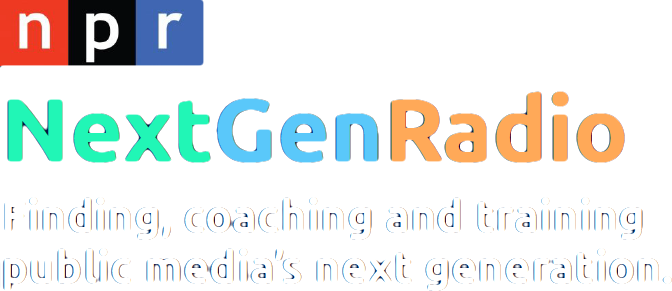When something goes wrong, no matter how small, I have a tendency to panic and panic a lot. And I feel like that tendency has been rewarded throughout my college career — that panic has fueled semesters where I’m signed up for too many classes, I’ve agreed to work too many hours, and I’ve agreed to too many extracurriculars.
When things don’t go according to plan or I have too much on my plate, I become filled with enough chaotic energy to get the job done, and then my professors applaud me for “working hard” or “doing well under pressure.” But panic and stress aren’t healthy or sustainable motivators.
During this Next Generation Radio project, I didn’t have that same experience. When I made a mistake or things weren’t working out like I expected them to, I had a team of mentors actively telling me that it was OK, that I wasn’t stupid or a bad person for making that mistake, and that we could just move on. I didn’t feel a need to panic because the message I was getting from them was that the week was short, there’s lots to do, and mistakes are inevitable so it doesn’t make sense to dwell on them.
The week was understandably intense with lots of deadlines and new skills to learn, it didn’t feel overwhelming because I wasn’t constantly entering panic mode. And I feel like my work was better because of that, I was able to more intentionally spend my energy.
While I need to learn how to handle stress and manage my time on my own, it was certainly a lot easier to do those things with a team of people supporting me.
As I work on these soft skills, after doing this project I want to make more opportunities for myself to work on projects that are fueled more by passion than deadlines. Finishing up this story has felt very gratifying and exciting. And I want to feel those things more often when I work instead of pure stress and panic.



